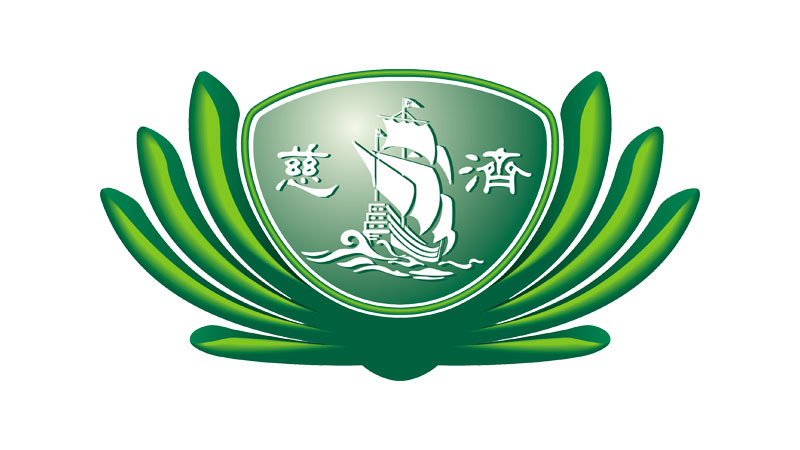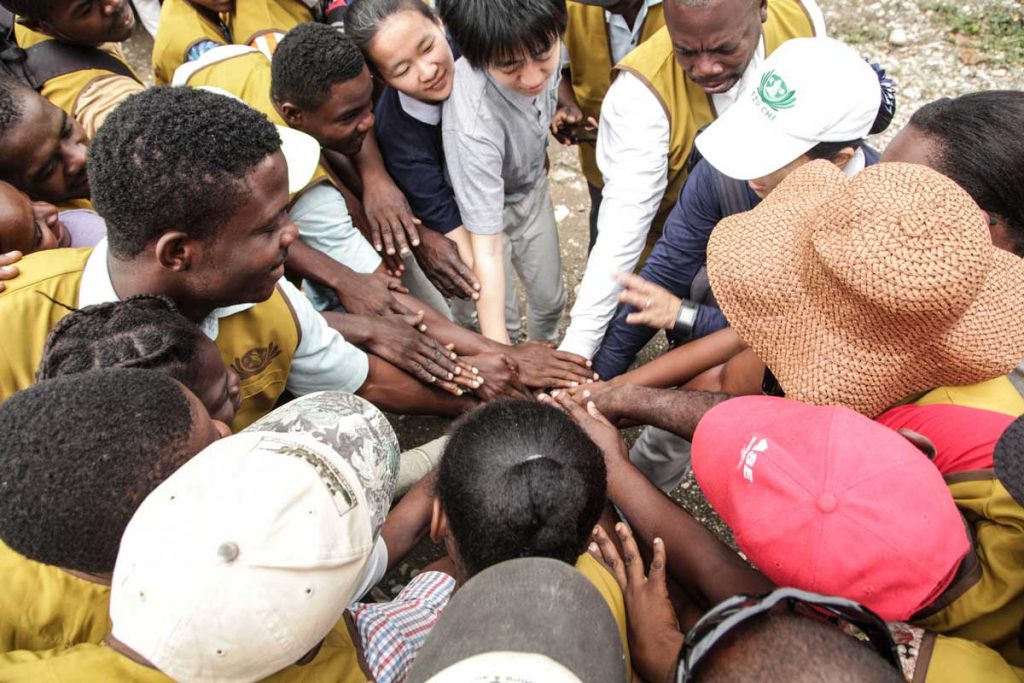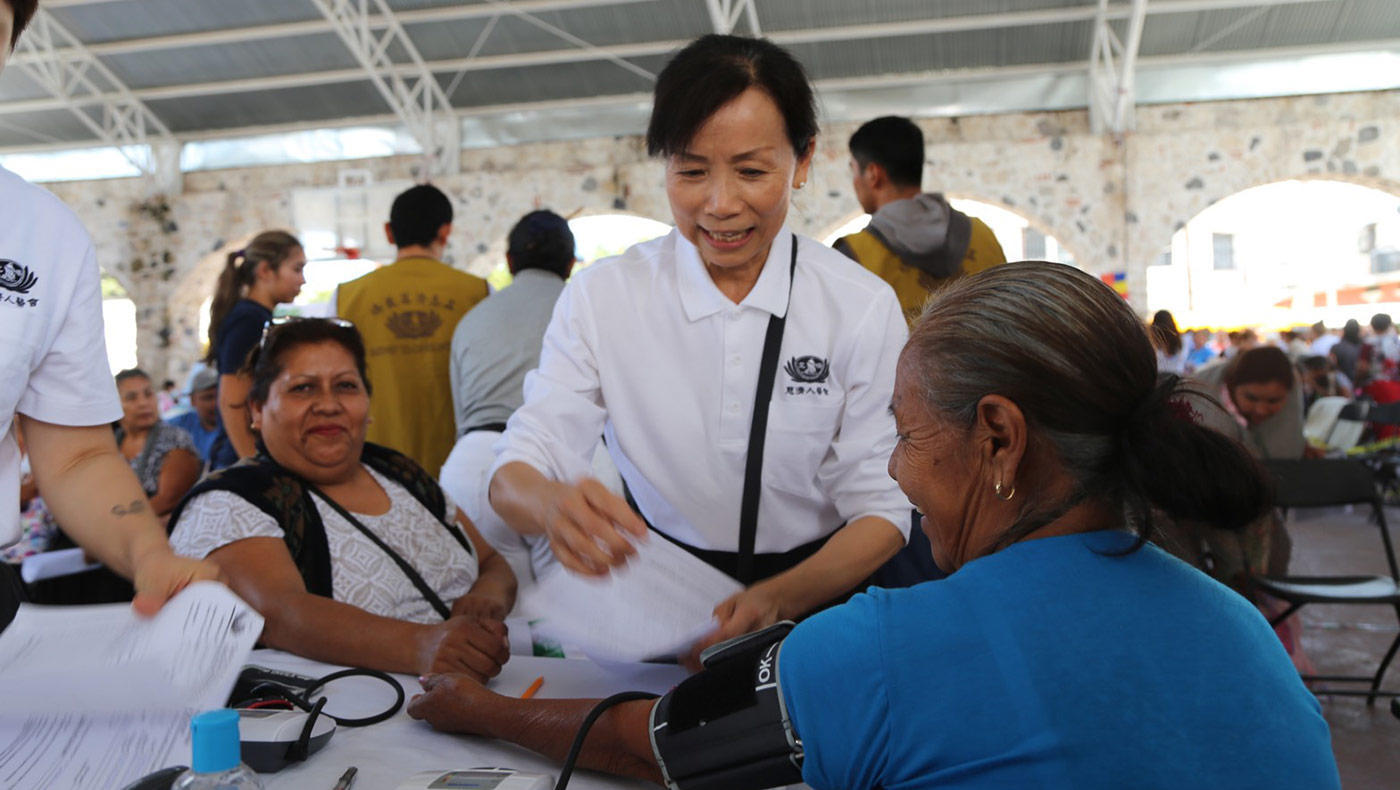
Author: Audrey Cheng
Translation: Yao-yang Tang
Editor: Dilber Shatursun
Photos by Carole Liu, Shuli Lo, and Wesley Tsai
When Carole Liu quit her nursing job and left for the States in 1982, it was the first time she’d left her hometown in Taipei, Taiwan. Her family, including her brothers and sisters, had been reluctant to let their youngest sibling go, but Carole’s husband, a doctor in training, had already been living and studying in the US. She was determined to join him. Little did Carole know the journey that would lie ahead.
A Blue-Collared Home
Carole’s father worked as a machine room maintenance worker in Nangang, Taipei. In order to support a family of seven, her father worked 360 days a year. He only took a short break of five days during the Lunar New Year. On weekdays, he worked from straight from Monday to Sunday. He worked very hard.
Carole’s mother never went to school. Despite being illiterate however, she was a resourceful woman. Long before environmentalist movements popularized the slogans of “reduce, reuse, recycle,” Carole’s mother had been an ardent practitioner of the 3Rs almost all her life. For instance, water was never wasted; every drop would be repurposed 2-3 times before discarding. A single bucket of water would rinse rice and vegetables, wash the hands, and finally flushed through the toilet. This is but one example.
To save money on food expenses, her mother would walk from Nangang to Songshan – 40 minutes each way – to buy favorably priced vegetables once a week. She’d carry food to last seven days with her slender arms and would drip with sweat. Though feeding the family alone was enough to hog their funds, her family was generous with others. When Carole’s cousins in the countryside came to Taipei to attend school, the family welcomed the cousins to live with them.
It was a small, modest home at that, more of a dormitory of two bedrooms, but it was a warm one in which Carole and her siblings grew up. Carole and her three sisters slept in one bedroom; before bedtime, the dining table in the living room was moved to the side to make room for Carole’s brother to sleep. To make some money, her mother would use the vegetable garden outside to make extra money. After school, the siblings would help with household chores and handicrafts. In fact, embroidering flowers on sweaters was one of the most memorable memories Carole had about her childhood.
But, because of their hardship, Carole’s eldest sister gave up on school to support her family. Even the rest of her siblings worked between summer and winter breaks. Among Carole’s part-time jobs were at an electronics factory, babysitting, and selling snacks. This last job was at a food service company called Hsin Tung Yang, where her boss turned a blind eye to when she and her coworkers would eat their company’s treats. This quiet generosity left an impression on Carole.
Carole had a bright personality and was a great assistant to her mother. She had always done well in school, and gave any school prizes to her mother, who would give them as gifts to their relatives in the countryside. Carole went on to study at the School of Nursing at the Taipei Medical University. She’d even give her salary to her mother; in Carole’s mind, her family’s needs were her priority.
A Swallow Finds Her Match
She later met her husband, Dr. Ming Wei Liu at the Taipei Medical University where he was a medical student. He always wore a khaki uniform on campus; he seemed sincere and calm. This captured Carole’s heart. After knowing each other for seven years, they married. The following year, Dr. Liu was sent to the United States for medical training. Life in a foreign land was lonesome, and oceans apart, Carole was by herself after work. Therefore, she decided to go to the United States to join him.
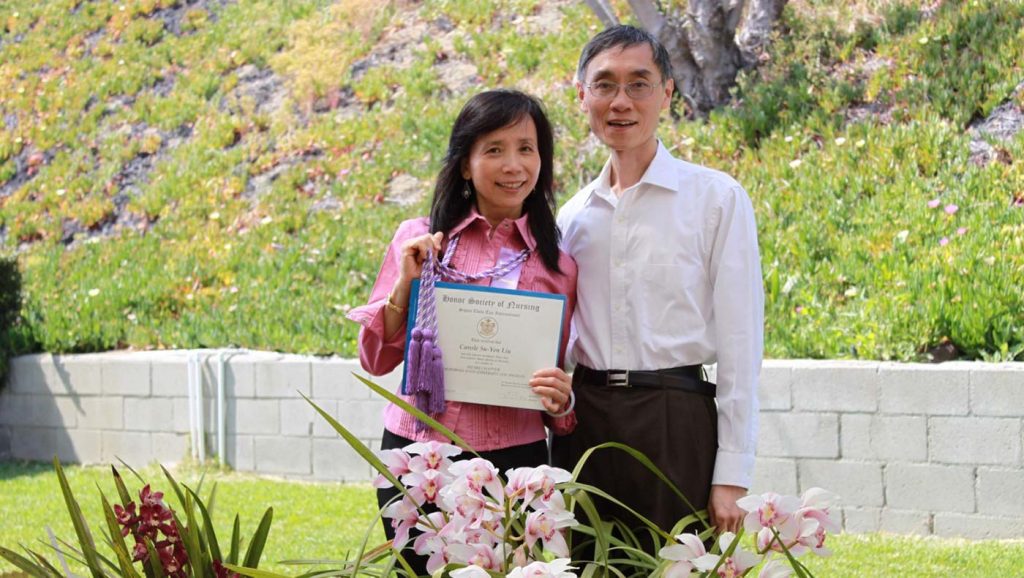
The couple had no choice but to ask his mother to care for their newborn son in Taiwan. At that time, a resident doctor earned a salary of only $1,200, of which $500 was sent back home to Taiwan. Carole missed her son very much, and she could only make phone calls to talk to him. Each minute cost $2, limiting their phone calls to 10 minutes once a week. After hanging up, Carole would cry for hours. Though just beginning speech, he couldn’t say “mom.” However, after he was 18 months old, the couple was able to have their child join them.
In the meantime, Carole tried her best to learn English and take licensing exams for nurses. English was a challenge, but fortunately, she had made a new friend named Peiqi. Peiqi’s husband was in the Air Force, and both of them were very caring. Peiqi practiced English conversation with Carole and even asked Carole to babysit her son. It was money Carole desperately needed.
After getting her nursing license, Carole became pregnant again. Considering the difficulty of nursing work through pregnancy, she made the decision to get a job at a restaurant in the meantime instead. However, that restaurant was a 40-minute drive away, and one day she accidentally bumped into someone else’s car. Carole was frightened, and she finally decided to quit her job altogether and concentrate on being an expecting mother, waiting for the delivery.
After the birth, Carole returned to nursing through night-shifts. Though she was supposed to leave at 11 PM, she’d have to spend extra time – till 1 AM – to finish writing reports and filling out medical records in English. Over time, her language skills improved, in part thanks to television and practice at the hospital.
Then, Dr. Liu’s training was done. They had lived in the States for 7 years and decided it was time to return to Taipei and continue practicing medicine there. Unfortunately, two years later, due to political changes, the family left again and moved back to the United States in 1991 to Alabama.
There, in the South, Dr. Liu served as a cardiovascular specialist and an interventional cardiovascular specialist. He worked in the emergency departments of three hospitals. In Carole’s eyes, Dr. Liu was both a humanistic doctor and a benevolent person. “Seeing patients as his own family” is a fitting description of him. A colleague once said, “I have worked in the catheterization laboratory for more than 40 years. You can ask Dr. Liu any question about cardiovascular catheters, he’s like a walking encyclopedia; he could answer virtually everything.”
Early on, Carole’s nursing work was mainly in the ICU and cardiovascular departments. She worked with Dr. Liu comfortably. He was both a husband and a teacher to her. Carole once thought that she could live without worry under Dr. Liu’s wings forever.
Loss and Healing
Unfortunately, in January 2017, Dr. Liu died. “Many patients did not believe that he had really left, and they often sat outside waiting for Dr. Liu, hoping to see Dr. Liu coming out of the office,” Carole explained. She was devastated.
Over the next 9 months, she kept looking for answers. There were too many whys and too many tears. Then, she realized her late husband would not have wanted to see her so unhappy. Determined to pick herself back up, she continued their shared enthusiasm for medicine, and wished that his spirit would reincarnate – and they could meet again.
This newfound healing pushed Carole to volunteer with the Tzu Chi Medical Foundation, who was sponsoring free medical outreaches in Mexico in December, 2017. It was just after the 2017 Puebla Earthquake, and the experience left a profound mark on her. Seeing the conditions on the ground, and the devastation families faced, Carole thought to herself, “there are so many people who suffer more than me!”
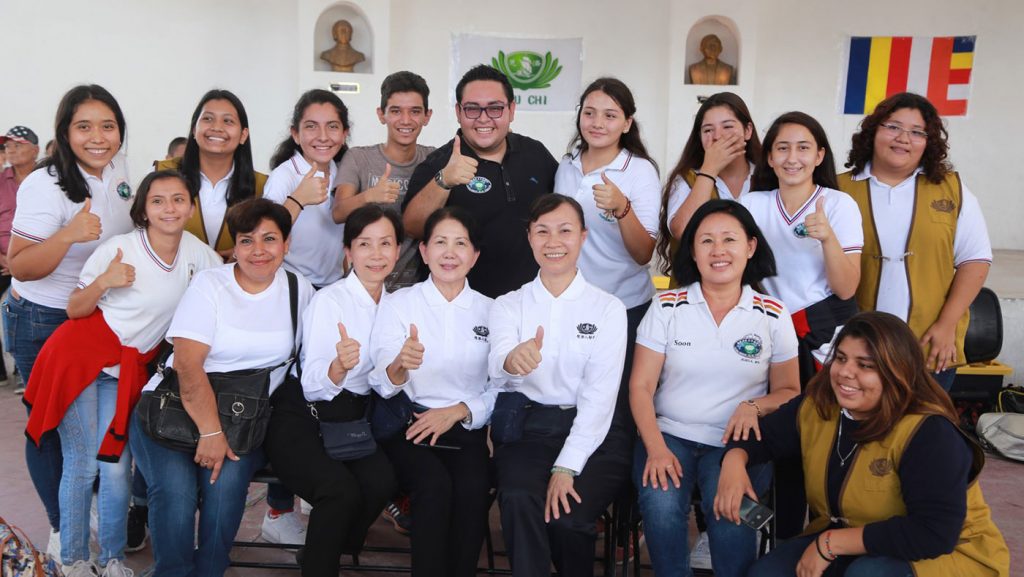
For the first time, Carole realized what it meant to see the suffering of others in order to appreciate what you have. The medical outreaches served impoverished areas in particular, and the combination of poverty and illness/injury brought her both sadness yet encouragement to keep helping. At barely 5 AM, Carole followed other volunteers to set up the venue. Lines had already formed, and those waiting smiled seeing Tzu Chi volunteers. Carole felt sorry for them and admired her colleagues, too, many who’d had this experience before. Seeing how much effort went into the outreach – and in the middle of winter – Carole developed a great respect for her teammates who, like her, were volunteers.
At an outreach, a woman had been walking for an hour to reach the site. She asked if a doctor could come visit her son, who is unable to walk. Dr. Zhao Youcheng met him and saw he had cerebral palsy. With their limited on-hand resources, the doctor could only offer the family vitamins. Another mother came to an outreach with her son; he was the same height as her, but was very skinny and had been vomiting after eating. He had been diagnosed for terminal gastric cancer, and there was very little Tzu Chi could do.
Seeing all this, Carole kept thinking of those families who were suffering. It motivated her to go back to Mexico in September 2018 for another international medical outreach with Tzu Chi. That was followed by a similar mission to Ecuador in July 2019.
Taking a Bold Next Step
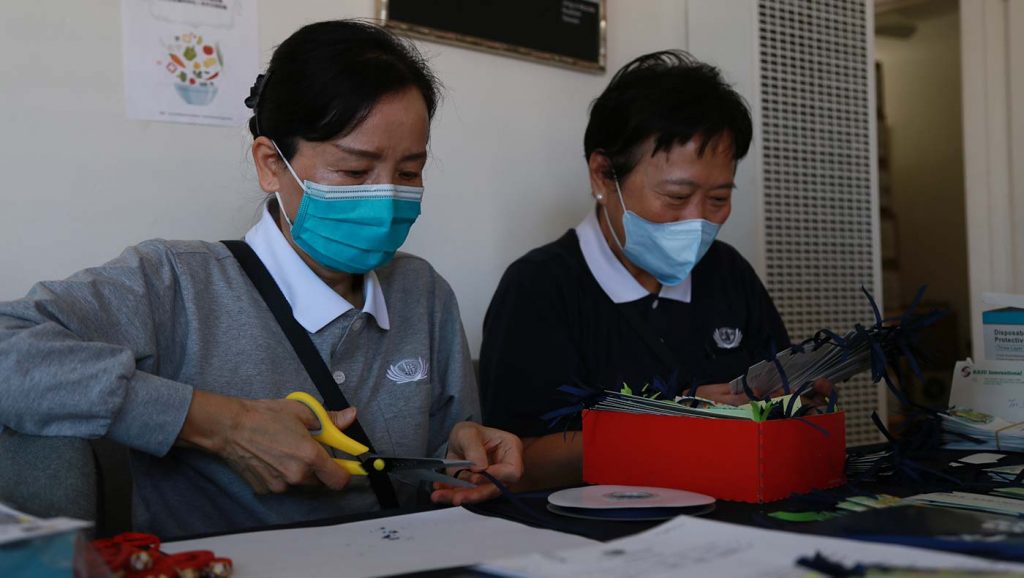
Having left Alabama in 2002, Carole changed jobs and moved to Southern California. She began to volunteer more at Tzu Chi Medical’s clinics as time permitted. She had crossed borders with her fellow volunteers into Mexico for medical outreaches, where medical services were provided for free. It brought her great joy; not only could she help patients who did not speak English and did not have money to buy insurance, she could also teach them health-related information to help them stay healthy.
Through the recommendation of Sister Huang Meizhao, Carole began to participate in Tzu Chi’s free clinics, and she began to learn of Tzu Chi’s recycling and bone marrow donation programs. She wondered why Tzu Chi’s founder, Dharma Master Cheng Yen, had such a vision. Later, a Tzu Chi brother gave her a book entitled “The Life Education of a Silent Mentor.” After reading the story of each silent mentor, or body donor, in the book, she almost used up a box of tissues to wipe her unstoppable tears: how could more people generate the faith to donate their bodies to further medical education?
Carole also saw TV reports of the 921 earthquake in Taiwan in 1999. She saw multitudes of Tzu Chi volunteers rushing to the disaster scene to help. Carole noticed that the volunteers would efficiently split their work into groups to rescue. She couldn’t help asking herself again, “how did Master do it?”
After her work at Tzu Chi’s clinics, volunteers would gather together to bond and share. Sister Sun Cixi and Dr. Deng Boren were at the same table as Carole. Dr. Deng asked Carole, “do you want to wear the cheongsam [dress] of a Tzu Chi commissioner?” To become a commissioner, Carole would have to complete a special volunteer training. Sister Sun Cixi also encouraged her, and Carole answered “yes” without hesitation. She knew that the time was right, and she would be willing to grasp the moment and give joyfully.
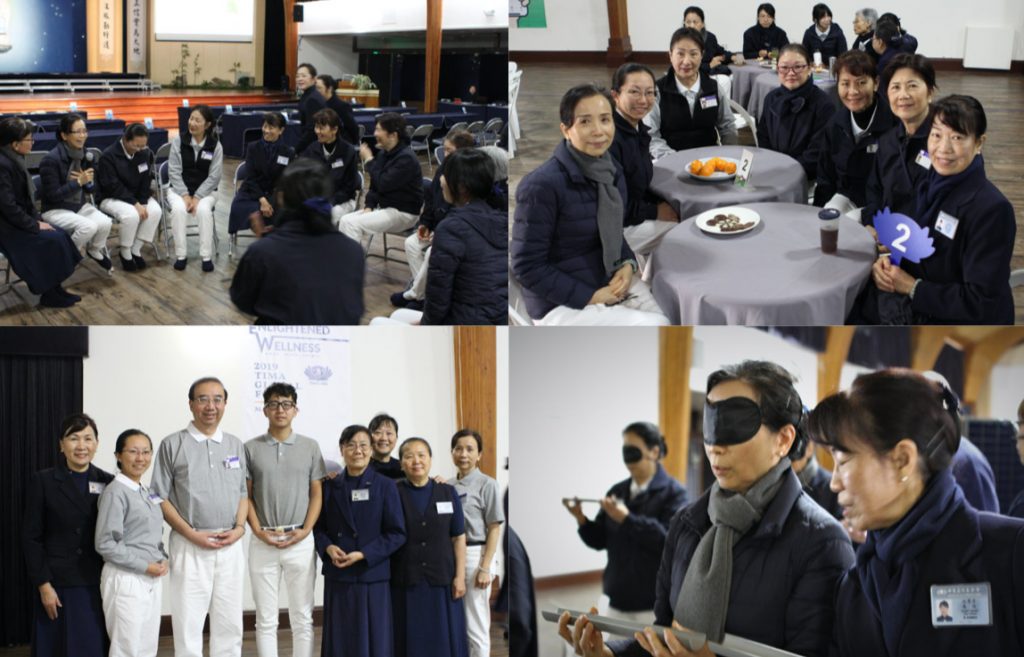
Carole made a wish to “follow the Master and walk the path of the Bodhisattva” in her heart, and she signed up for Tzu Chi’s training classes in September 2018. During that time, Carole was determined to enter the Tzu Chi world to understand, learn, and find the answers she was seeking about life, suffering, and compassion.
The two-year training opened up Carole’s understanding of Tzu Chi’s roots in Mahayana Buddhism, and she also found the answers to her curiosity. After getting started, she benefited a lot from the course and study of the Dharma, and she became more determined to follow the Master. She has learned to reflect on herself, gotten rid of some bad habits, and, despite being a shy person, become at ease with speaking publicly about Tzu Chi. Ever since, she has devoted herself to the bodhisattva path with compassion, wisdom, and heart as strong as ever.
